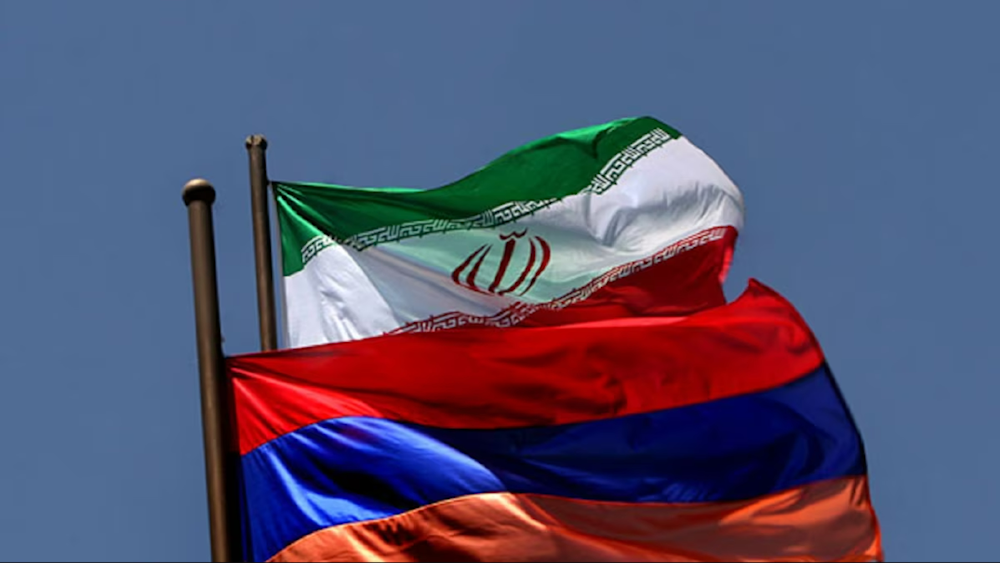Iran, Armenia FMs discuss region, bilateral ties via phone call
Acting Iranian Foreign Minister Bagheri Kani states that Iran's regional security doctrine is supported by relying on neighboring nations, stressing his country's commitment to play a part in ensuring lasting security and stability in the Caucasus region.
-

The Iranian and Armenian flags. (Fars news agency)
During a phone conversation, Iran's acting Foreign Minister, Ali Bagheri Kani spoke with Armenian Minister of Foreign Affairs Ararat Mirzoyan to discuss promoting bilateral ties.
In a statement, Iran's Foreign Ministry relayed that Bagheri Kani thanked Armenian authorities for sending condolences to Iran, and praised Mirzoyan's visit to Tehran.
Bagheri Kani stated that Iran's regional security doctrine is supported by relying on neighboring nations, stressing his country's commitment to play a part in ensuring lasting security and stability in the Caucasus region.
He continued to underline Iran's urge to implement the agreements signed with Armenia while expressing the country's readiness to help the flood-impacted communities in the neighboring country.
On his part, Mirzoyan mirrored the commitment to cooperate with Iran to achieve mutual goals, adding that Iran already contributes to promoting peace in the South Caucasus region.
The Armenian Foreign Ministry confirmed that Mirzoyan reiterated his condolences to Bagheri Kani over the death of Iranian President Ebrahim Raisi, Foreign Minister Hossein Amir-Abdollahian, and six of their companions in a helicopter crash this month.
In a separate meeting, Mirzoyan met with the Leader of the Islamic Revolution, Ayatollah Seyyed Ali Khamenei, who said that the bilateral relations created opponents and should be addressed with “attention and care.”
Raisi was known to be a major player in trying to maintain peace between Armenia and Azerbaijan.
Read more: Iran will continue defending Palestine, Bagheri Kani affirms
Investigation results into helicopter crash
Raisi, alongside Iranian Foreign Minister Hossein Amir-Abdollahian and accompanying officials passed away on May 19 in a tragic helicopter crash in Iran's East Azerbaijan Province. The Communications Center of the Iranian Armed Forces General Staff released on Wednesday its second report concerning the investigation into the circumstances surrounding the helicopter crash that resulted in the death of Raisi, Amir-Abdollahian, and their companions.
The report emphatically denies any sabotage or explosion affecting the helicopter during its flight.
The report confirms that there was "no malfunction" in the communication systems or interference with the helicopter's frequencies at the time of the incident.
Additionally, it stated that there were no signs of electronic warfare targeting the aircraft. The number of passengers onboard was also found to be "consistent with the weight standards" typically observed for such flights.
The preliminary report showed that President Raisi's helicopter followed its pre-planned itinerary and did not divert from it, according to the General Staff of the Armed Forces of the Islamic Republic of Iran, stressing that the helicopter's pilot was in contact with the crewmembers of the two other helicopters that were part of the presidential convoy.

 3 Min Read
3 Min Read










